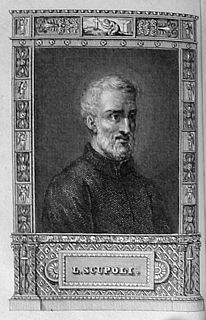A Quote by Soren Kierkegaard
And this is the simple truth - that to live is to feel oneself lost. He who accepts it has already begun to find himself, to be on firm ground. Instinctively, as do the shipwrecked, he will look around for something to which to cling, and that tragic, ruthless glance, absolutely sincere, because it is a question of his salvation, will cause him to bring order into the chaos of his life. These are the only genuine ideas; the ideas of the shipwrecked. All the rest is rhetoric, posturing, farce.
Related Quotes
A man never is happy, but spends his whole life in striving after something which he thinks will make him so; he seldom attains his goal, and when he does, it is only to be disappointed; he is mostly shipwrecked in the end, and comes into harbor with mast and rigging gone. And then, it is all one whether he has been happy or miserable; for his life was never anything more than a present moment always vanishing; and now it is over.
For some reason or other man looks for the miracle, and to accomplish it he will wade through blood. He will debauch himself with ideas, he will reduce himself to a shadow if for only one second of his life he can close his eyes to the hideousness of reality. Everything is endured-disgrace, humiliation, poverty, war, crime, ennui-in the belief that overnight something will occur, a miracle, which will render life tolerable.
As man reaches out toward the twenty-first century, he will learn to be suspicious of all ideas that are not formulated so that they can be tested by observation. He will realize that the history of human thought shows that the ideas of which we are surest are the ones we most need to test. He will realize that his common sense only mirrors his training and experience. What seems natural and right to him is usually a reflection of the conditions under which he spent his first decade of life.
The true solitary ... will feel that he is himself only when he is alone; when he is in company he will feel that he perjures himself, prostitutes himself to the exactions of others; he will feel that time spent in company is time lost; he will be conscious only of his impatience to get back to his true life.
It is the work of the Canadian artist to paint or play or write in such a way that life will be enlarged for himself and his fellow man. The painter will look around him . . . and finding everything good, will strive to communicate that feeling through a portrayal of the essentials of sunlight, or snow, or tree or tragic cloud, or human face, according to his power and individuality.
As long as a man is persuaded that he can make even the smallest contribution to his salvation, he remains self-confident and does not utterly despair of himself, and so is not humbled before God. Such a man plans out for himself a position, an occasion, a work, which shall bring him final salvation, but which will not.
Total surrender to the will of God actually is sacrificing oneself as a burnt offering to God. The proof of this state is dying to oneself, - to one's own opinions, wishes and feelings or tastes, in order to live by Divine intellect, in conformity with the Divine will and in partaking of God. In the forefront of this endeavor is our Lord and Savior. He surrendered the whole of Himself to God the Father, and us in Himself, 'For we are members of His body, of His flesh, and of His bones' (Eph. 5:30). So let us hasten in His footsteps?
If a man does not keep pace with his companions, perhaps it is because he hears a different drummer. Let him step to the music which he hears, however measured or far away. It is not important that he should mature as soon as an apple-tree or oak. Shall he turn his spring into summer? If the condition of things which we were made for is not yet, what were any reality which we can substitute? We will not be shipwrecked on a vain reality.






































